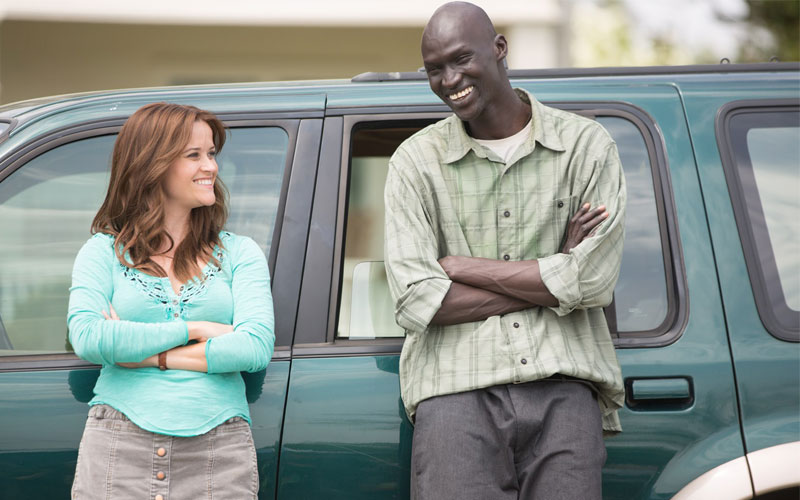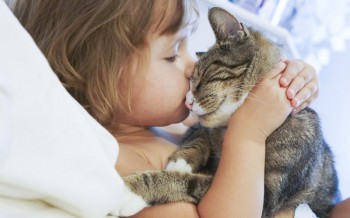The Good Lie opens Oct. 3 in theaters near you. Starring Academy Award winner Reese Witherspoon, it is the story of the Lost Boys of Sudan, a group of 20,000 children, mostly boys, who trekked through the wilderness seeking refuge from the fighting that occurred during the the Second Sudanese Civil War.
Some of these orphans were fortunate enough to come to the United States through a resettlement program. The Good Lie details the experiences of several Lost Boy of Sudan--now young adults--as they acclimate to life in America.
A late-September media call was held during which Reese Witherspoon described her work in the movie and her hopes for raising awareness for the hundreds of thousands of people who still live in refugee camps in Kenya, the Sudan and Uganda.
Q: Your character has experienced her own emotional tragedies, yet she helps the boys. Let’s talk about how personal suffering can be used to help other people.
RW: Service is the antidote to the completely self-absorbing society we live in. We’re always on the phone, updating our profiles on Facebook. We need to get out of our bubbles and push ourselves to meet people from different cultures and communities. …How many times do we pass by people who are invisible to us? This movie is about human connection. Everyone is part of this human fabric that creates community. To acknowledge these people more is a big message of the film.
Q: Tell us what it was like to work with the actors who were actually some of the Lost Boys of Sudan?
RW: The director wanted to cast real refugees, and I was a little trepidation. But now, I can’t imagine working with anyone else. The depth of the emotion they brought to their characters because of their real-life experience was so profound. Sometimes, I’d have to ask them personal questions and they’d talk about what it was like to see their parents get killed or trying to cross the river and seeing people drown. … They used to pass dead children on the road, and they never cried. They’d take the clothes off the [dead children’s] backs and use them. I was floored. Their experience was so much deeper than what we see in the film.
Q: Tell us what it was like to go to Kakuma, the refugee camp in Kenya?
RW: I took my daughter who is 13. It was very emotional for both of us to see children sleeping on concrete slabs. Elementary schools stop when kids are 10 or 11 year old because there’s no reason for them to go beyond that because there are no opportunities; 250,000 people are displaced from their own communities, people who are intelligent and who are leaders, and they’re displaced. It was a profound experience and one I won’t soon forget.
Q: What do you hope a movie like this will accomplish?
RW: I’ve read lots and lots of Hollywood scripts, and it’s rare to make a film that has a Christian message. … This movie starts the conversation: How can we reach out to people? You can touch someone’s life here in the United States. Immigration is just one example. What can we do to help immigrants connect to our communities, our families, our churches, our schools? What can we do to make them feel welcome, employed and viable? The movie is a great talking point for families and their kids.
Learn how the Bible is helping children find healing after experiencing pain and conflict in the Great Lakes region of Africa. Read more.
Read more posts about: Bible Basics
Thanks to the support of our faithful financial partners, American Bible Society has been engaging people with the life-changing message of God’s Word for more than 200 years.
Help us share God's Word where
needed most.
Sign up to receive free coloring pages and regular email updates from the Bible Blog.




